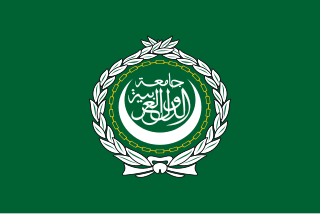 W
WThe Arab League, formally the League of Arab States, is a regional organization in the Arab world, which is located in Northern Africa, Western Africa, Eastern Africa, and Western Asia. The Arab League was formed in Cairo on 22 March 1945 initially with six members: Egypt, Iraq, Transjordan, Lebanon, Saudi Arabia, and Syria. Yemen joined as a member on 5 May 1945. Currently, the League has 22 members, but Syria's participation has been suspended since November 2011.
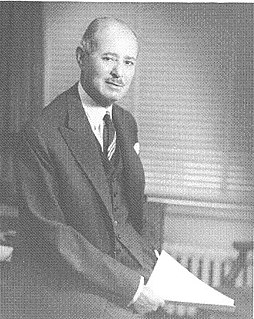 W
WKamil Abdul Rahim was a career diplomat and a businessman.
 W
WThe Alexandria Protocol is an agreement signed on 7 October 1944, in Alexandria, by five Arab countries agreeing to the formation of a joint Arab Organization, which led to the formation of the League of Arab States in the following year.
 W
WThe Arab Air Carriers Organization is a non-political non-profit organization with 33 constituent airline members from 19 countries headquartered in Beirut, Lebanon. The AACO members collectively offer 3,514 daily flights to 451 airports in 127 countries. Its goal is to promote cooperation, quality and safety standards among the Arab airlines.
 W
WThe Arab Customs Union is a customs union announced at the Arab League's 2009 Arab Economic and Social Development Summit in Kuwait in order to achieve a functional customs union by 2015 and an Arab common market by 2020 and to increase inter-Arab trade and integration.
 W
WThe Arab European League is a Pan-Arabist political organisation active in Belgium and the Netherlands.
 W
WThe Arab Fashion Council (AFC) is the world's largest non-profit fashion council and an INGO for the Arab world, representing the 22 members of the Arab League. It is based in Dubai with the main goal to promote Arab fashion designers internationally, disseminate fashion culture in the region, and position the Arab world on the international map of fashion. It includes Arab companies and talent within the fashion industry, in particular fashion designers, models, photographers, hair stylists, make-up artists, and art directors. Likewise, it regulates the modelling agencies by creating standards to protect models working in the Arab world. Finally, it regulates the schools of fashion registered under the laws of Arab countries.
 W
WThe Arab Fund for Economic and Social Development (AFESD) is a Kuwait-based pan-Arab development finance institution. All member-states of the Arab League are members of the AFESD. As of 2003, it held around US$7.3 billion in assets.
 W
WThe Arab League boycott of Israel is a strategy adopted by the Arab League and its member states to boycott economic and other relations between Arabs and the Arab states and Israel and specifically stopping all trade with Israel which adds to that country's economic and military strength. A secondary boycott was later imposed, to boycott non-Israeli companies that do business with Israel, and later a tertiary boycott involved the blacklisting of firms that do business with other companies that do business with Israel.
The Arab League Educational, Cultural and Scientific Organization (ALECSO) is a Tunis-based institution of the Arab League, established in accordance with article 3 of the Arab Cultural Unity Charter by an announcement made in Cairo, Egypt, on 25 July 1970. ALECSO works to coordinate cultural and educational activities in the Arab world.
 W
WOn December 19, 2011, the Syrian government agreed to allow foreign observers from the Arab League to monitor Syria's progress in removing troops from protest areas, free political prisoners, and negotiate with dissidents. The mission was in accordance with the Arab League peace plan aimed to resolve the Syrian crisis. The monitors were dispatched and supported by the Arab League.
 W
WThe Arab Monetary Fund (AMF) is a regional Arab organization, a working sub-organization of the Arab League. It was founded 1976, and has been operational since 1977.
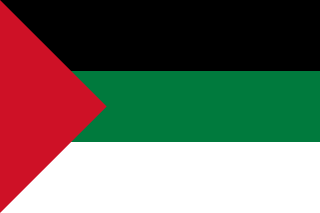 W
WArab nationalism is a nationalist ideology that asserts the Arabs are a nation and promotes the unity of Arab people, celebrating the glories of Arab civilization, the language and literature of the Arabs, and calling for rejuvenation and political union in the Arab world. Its central premise is that the peoples of the Arab world, from the Atlantic Ocean to the Indian Ocean, constitute one nation bound together by common ethnicity, language, culture, history, identity, geography and politics. One of the primary goals of Arab nationalism is the end of Western influence in the Arab world, seen as a "nemesis" of Arab strength, and the removal of those Arab governments considered to be dependent upon Western power. It rose to prominence with the weakening and defeat of the Ottoman Empire in the early 20th century and declined after the defeat of the Arab armies in the Six-Day War.
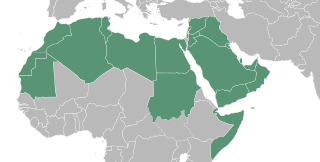 W
WThe Arab Organization for Human Rights is a Non-Governmental Organization (NGO) that works on human rights issues in the Arab World. It was founded with a resolution agreed on in Hammamet, Tunisia, in 1983.
 W
WThe Arab Parliament is the legislative body of the Arab League. At the 19th Arab League Summit in Amman, the Arab states agreed to create an Arab Parliament, and came up with a resolution to give Amr Moussa the Secretary General of the Arab League the power to start and create the Parliament. In 2004, in the ordinary Arab League Summit in Algiers was the official date where all Arab League Members agreed to send their representative to the temporary Parliament sessions that took place in the headquarters of the Arab League in Cairo, Egypt, with each member state sending four members, until the Parliament is reassigned permanently to its under-construction office in Damascus.
 W
WThe Arab Peace Initiative, also known as the Saudi Initiative, is a 10 sentence proposal for an end to the Arab–Israeli conflict that was endorsed by the Arab League in 2002 at the Beirut Summit and re-endorsed at the 2007 and at the 2017 Arab League summits. The initiative offers normalisation of relations by the Arab world with Israel, in return for a full withdrawal by Israel from the occupied territories, a "just settlement" of the Palestinian refugee problem based on UN Resolution 194, and the establishment of a Palestinian state with East Jerusalem as its capital. The Initiative was initially overshadowed by the Passover massacre, a major Palestinian attack that took place on 27 March 2002, the day before the Initiative was published.
 W
WThe WAGGGS-Arab Region is the divisional office of the World Association of Girl Guides and Girl Scouts, headquartered in Cairo, Egypt. The WAGGGS-Arab Region comprises 17 members of Guiding in Western Asia and North Africa, including Algeria, Bahrain, Egypt, Jordan, Kuwait, Lebanon, Libya, Mauritania, Morocco, Oman, Palestine, Qatar, Saudi Arabia, Sudan, Tunisia, the United Arab Emirates, and Yemen.
 W
WThe Association of Arab Universities, also called the Union of Arab Universities, is an organization working within the framework of the Arab League. It is based in Amman, Jordan. The objective of the organization is to support and connect universities in the Arab world, and to enhance cooperation among them.
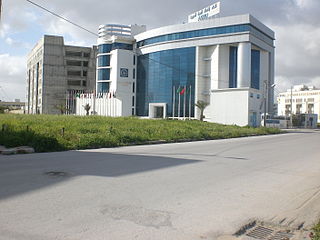 W
WThe Arab States Broadcasting Union (ASBU) is an Arab joint-action institution related to the League of Arab States and the Pan-Arab Association of Public Service and Commercial Broadcasters. Founded in February 1969 in Khartoum, ASBU is a professional organization with the objective of strengthening ties and promoting cooperation among broadcasters in the Arab States for better production and content development. ASBU provides important services such as engineering and consulting services, radio and television exchange of news, programming and sports, as well as radio and TV training. It also strives to acquire broadcasting rights at preferential rates for a number of competitions and sports events to the benefit of its members, as well as to ensure the appropriate broadcasting coverage of such events.
 W
WThe Council of Arab Economic Unity (CAEU) was founded by Egypt, Iraq, Jordan, Kuwait, Libya, Mauritania, Palestine, Saudi Arabia, Sudan, Tunisia, Syria, United Arab Emirates and Yemen on May 30, 1964, following an agreement in 1957 by the Economic Council of the Arab League.
 W
WThe Arab world consists of 22 states. As of 2018, the combined population of all the Arab states was around 407-420 million people.
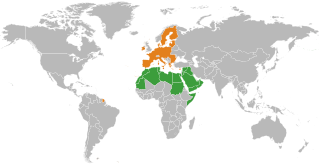 W
WThe Arab League and European Union have shared relations since the EU's development into a more political power rather than an economic one. At the 19th summit of the Arab League in Saudi Arabia, Javier Solana attended the summit. He gave the EU's full support to the Arab League's Peace Initiative of 2002. At the summit, he addressed the Arab Leaders:
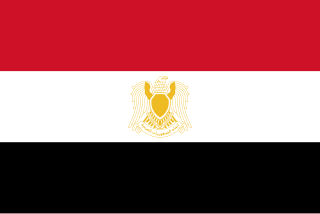 W
WThe Federation of Arab Republics was an unsuccessful attempt by Muammar Gaddafi to merge Libya, Egypt and Syria in order to create a unified Arab state. Although approved by a referendum in each country on 1 September 1971, the three countries disagreed on the specific terms of the merger. The federation lasted from 1 January 1972 to 19 November 1977.
 W
WThe flag of the Arab League comprises a green banner bearing the seal of the Arab League. The twenty-two links in the chain represent the twenty-two members of the League at the time of the flag's adoption. The script gives the name of the organization: "League of Arab States".
 W
WThe Arab League was founded in 1945, has 22 members and five observer members: Armenia, Brazil, Eritrea, India, and Venezuela.
 W
WThe Hawk of Quraish is a symbol which is found on a number of emblems, coats of arms and flags of several states of the Arab League. The Arabs of the Arabian Peninsula, today especially those from the Arab side of the Persian Gulf coast, are traditionally falconry experts; falcons are seen as status symbols and are a common domesticated animal among ethnic Arabs. Also the traditions and recorded history about the Quraysh and Muhammad claim a falcon had been used as clan symbol. Therefore, several variants of the Quraishi hawk were and are seen in the flags, coat of arms, seals and emblems of several Arab states until today. In that meaning, the Hawk of Quraish is a rival to the Eagle of Saladin.
 W
WThe Headquarters of the Arab League is located in Tahrir Square and near the downtown business district of Cairo, Egypt. The headquarters building has views of the Nile River and Qasr al-Nil Bridge just to the west.
 W
WThe Headwater Diversion Plan was an Arab League plan to divert two of the three sources of the Jordan River, and prevent them from flowing into the Sea of Galilee, in order to thwart Israel's plans to use the water of the Hasbani and Banias in its National Water Carrier project for out of Basin irrigation. The plan was approved by the Arab League in 1964 but Israel prevented the project's development by conducting airstrikes in Syrian territory in April 1967.
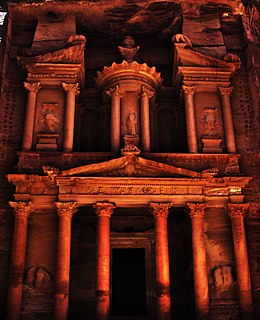 W
WIn its early years, the Arab League concentrated mainly on economic, cultural and social programs. In 1959, it held the first Arab Petroleum Congress, and in 1964, established the Arab League Educational, Cultural, and Scientific Organization. In 1974, despite objections by Jordan, the league recognized the PLO as the sole legitimate representative of all Palestinians.
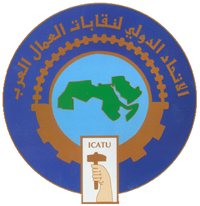 W
WThe International Confederation of Arab Trade Unions is the international representation of trade unions in a number of Arab nations.
 W
WThis is a list of mosques in the Arab League.
 W
WThe United Arab Republic was a sovereign state in the Middle East from 1958 until 1971. It was initially a political union between Egypt and Syria from 1958 until Syria seceded from the union after the 1961 Syrian coup d'état — leaving a rump state. Egypt continued to be known officially as the United Arab Republic until 1971.